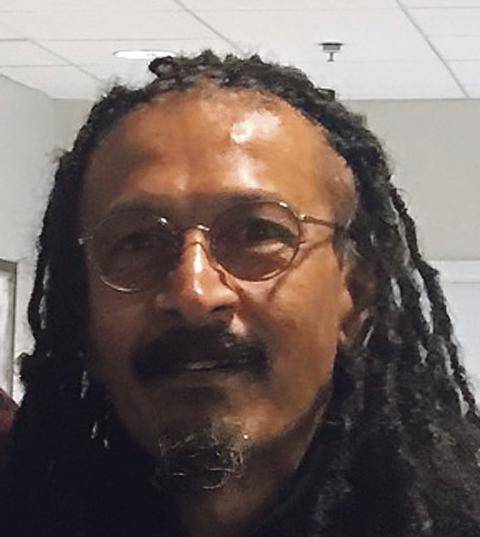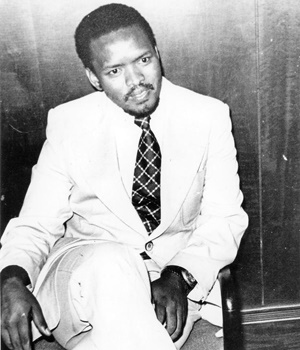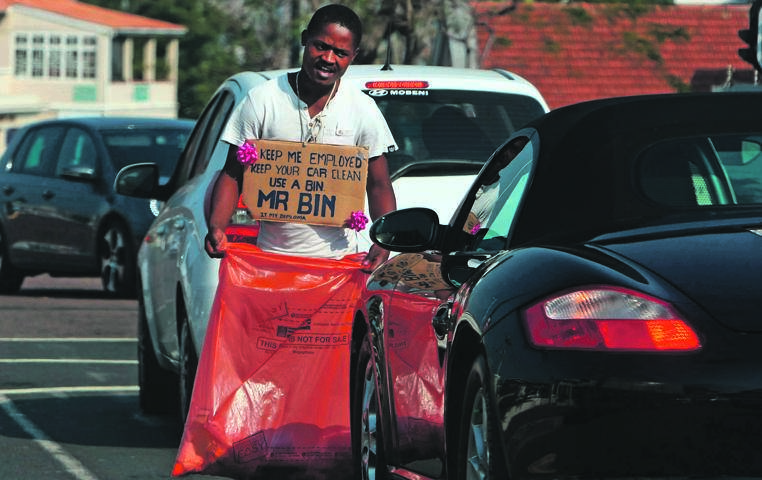
It is sad to reflect on the way Steve Biko valiantly sacrificed his life on September 12 1977, and even sadder when we consider how he gave his all for the South African/Azanian liberation struggle.
Biko lived simply and modestly during the struggle in the 1960s and 1970s, and in the towns and communities where he worked, especially in the Eastern Cape and KwaZulu-Natal.
He sacrificed personal and monetary gain for championing the health and nutritional needs of those most unfortunate in places such as Zwelitsha, inspiring the formation of Impilo community health clinics and Black community programmes. Food was always shared in his social circles, even among those who were unemployed and had no regular income.
This was the widely used term, ubuntu, in practice. Yet sadly, ubuntu is virtually absent from the lives of South Africans today. Income earners generally ignore the needs of the vulnerable, unemployed, impoverished and malnourished.
Biko was sharply critical of the way in which the apartheid capitalist system viewed and treated Black workers as cogs in a machine, devoid of human needs and feelings. Pointing out how the apartheid system institutionalised racism and exploitation, he rebuked those imposing the system for forgetting “that we are talking about human beings here”.
He understood that the obsession of capitalists with profit and the economy was, and it still is, at the root of the catastrophy in South Africa that has seen millions of Black people unemployed, underpaid, homeless, deprived of free access to education and health, and struggling for access to clean drinking water, toilets, sanitation and adequate housing.
Such privations are a core cause of the internecine violence that is rife even today in impoverished communities in the Cape Flats such as Philippi, Blue Downs, Crossroads, etc – and that resulted in the SA Defence Force having to send soldiers to quell the mayhem. Violence by the oppressed is a response to the violence of the ruling, privileged classes of society, and it stems from the depths of powerlessness and frustration.
Why are South African parliamentarians not deprived of adequate housing, drinking water and sanitation, and forced to eke out an existence in the slums and overcrowded townships today?
And why are Black women, especially those in the townships, subjected to violence on a daily basis?
Today, 25 years after the formal ascent of a post-apartheid “democratic” government, women are raped, assaulted and murdered each day, as are the country’s children. We in South Africa have one of the highest rates of violence and murder in the world, comparable to countries at war.
The nation is at war with itself because the post-apartheid government opted to repudiate Black Consciousness as irrelevant in the 1990s, in the interest of supposedly sowing racial harmony – but also because white capital was hostile to the socialistic and egalitarian principles of Black Consciousness.
Today, the legacy of hegemonic white capital persists because our politicians, who are mostly Black, enjoy privileges while in Parliament. White capital urged such privilege so that its hegemonic role would be obscured from the general public by the so-called democratic Parliament.
While we are given information on the economic and financial monopolies in South Africa and we lament the hegemonic role of white capital, few of us realise that when the global capitalist economy and the local South African economy boom, it does not imply the amelioration or eradication of impoverishment.
Any major news dealing with positive economic developments – such as the rising stock market or growth in the banking sector – is not concerned with the world’s impoverished majority. Profit margins are all that matters to these news outlets, while the stock market is concerned only with the projected rise of investment in stocks serving global capitalist conglomerates.
Fast-forward to South Africa in 2019, and the nation remains confused by the ideology. Most of the population is undernourished as a result of impoverishment brought on by landlessness and dispossession from the colonial era. People are forced to live in overcrowded slums and townships.
Employees in the mining and manufacturing sectors –in rapid decline because of the waning demand for metals globally – work tirelessly for large corporations and suffer the humiliation of inadequate wages, poor nutrition and lack of family time. Meanwhile, gigantic profits are made by the employing corporations and shareholders.
In most instances, people are brainwashed into working hard to acquire material things – cellphones, TV sets, cars, clothes – because the entire capitalist world, of which South Africa is regrettably an intrinsic part, is directed at materialistic consumption. They do not focus on living naturally with the Earth and building natural economies, the way those living a rural life in Tanzania in the 1980s did.
South African workers tend to produce goods for consumption by mainly local or global elites and the upper middle class. They hardly have an opportunity to grow and consume their own food – again, because they are landless as a result of colonisation, which is an ongoing outrage after 25 years of so-called freedom.
Biko warned about the fundamentally exploitative relations of capitalism, a dog-eat-dog system. He advocated an indigenous-based cultural society in which humans and the rest of the natural world, including the land, ecology, environment and all life on Earth, were sacred. He rejected the profit-making means of existence that colonialism had violently entrenched in the world for over five centuries.
The reality is that whatever belongs to the Earth – from water, its most important resource, to all of the precious metals used for Western industrialism (including gold, diamonds, uranium, manganese, iron, vanadium, zinc, copper and platinum) – is being depleted day by day. These are the very same resources that have been manipulated to cause bloodshed for mine workers over the past 150 years.
The Earth is becoming hotter and drier, not only in Cape Town and the Karoo, but also in the rest of the country. Kariba Dam in Zimbabwe/Zambia is struggling to maintain adequate water levels for electricity generation. The phenomenon of rising ocean levels as a result of rapidly melting glaciers, along with the acidification of our oceans, where 80% of all life lives, is fracturing the fragile marine food-chain ecosystem.
Birds, insects, our wildlife and countless plant and tree species are facing extinction in Africa and all over the world. It is only a matter of time before humans face a similar lethal threat, given the ongoing culture of human consumption and the way in which we waste water.
As an architect of Black Consciousness, Biko was light years ahead of his time and understood what would be occurring now, 42 years after his death.
He proposed the creation of an indigenous, practical, humane, nature-based economy, underpinned by economic justice for all, and in which life on Earth could be preserved for future generations.
Ironically, the martyred South African leader who sacrificed his life for the nation and its future, who inspired the youth of 1976 – some of whom are our national leaders – and who is considered “out of date” today, may be the thinker and practitioner who could save South Africa’s soul. As Biko so aptly put it: Africa may yet “give the world a more humane face”.
- Kunnie is a professor, writer and activist working with indigenous communities worldwide. His most recent book is The Cost of Globalization: Dangers to the Earth and Its People (McFarland). He is working on a monograph, Capitalism Versus the Earth in the 21st Century
Do you think we have forgotten Steve Biko’s teachings about egality and black consciousness?
SMS us on 35697 using the keyword BIKO and tell us what you think. Please include your name and province. SMSes cost R1.50. By participating, you agree to receive occasional marketing material
 | ||||||||||||||||||||||||||
Get in touchCity Press | ||||||||||||||||||||||||||
| ||||||||||||||||||||||||||
| Rise above the clutter | Choose your news | City Press in your inbox | ||||||||||||||||||||||||||
| City Press is an agenda-setting South African news brand that publishes across platforms. Its flagship print edition is distributed on a Sunday. |




 Publications
Publications
 Partners
Partners










